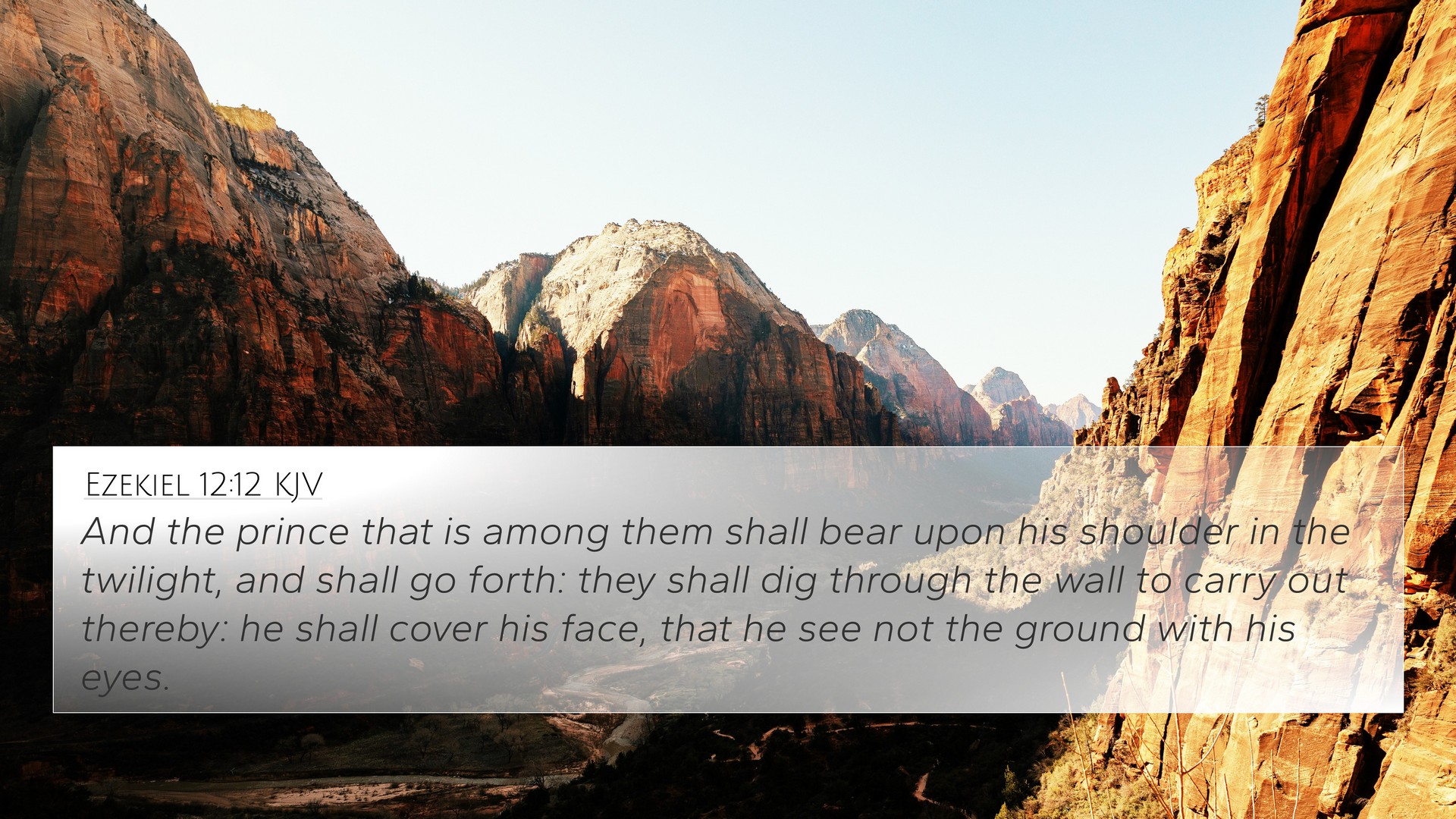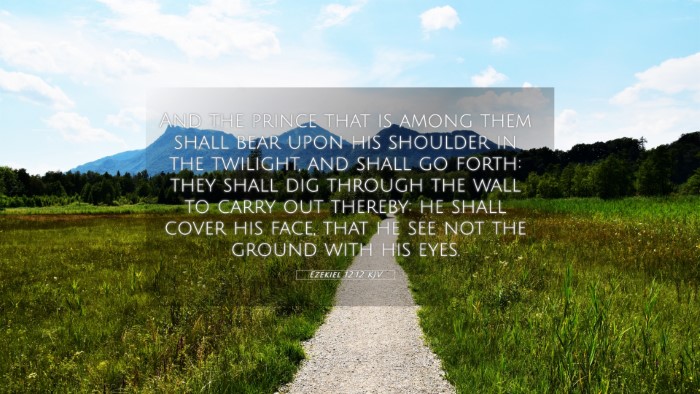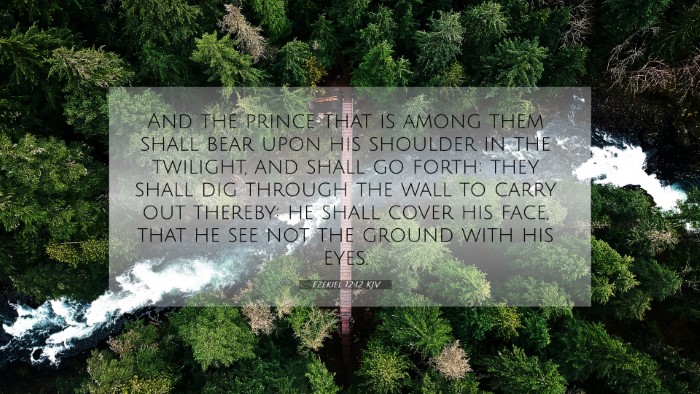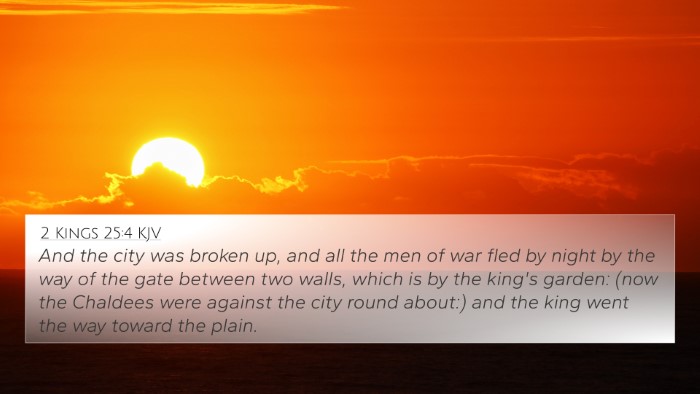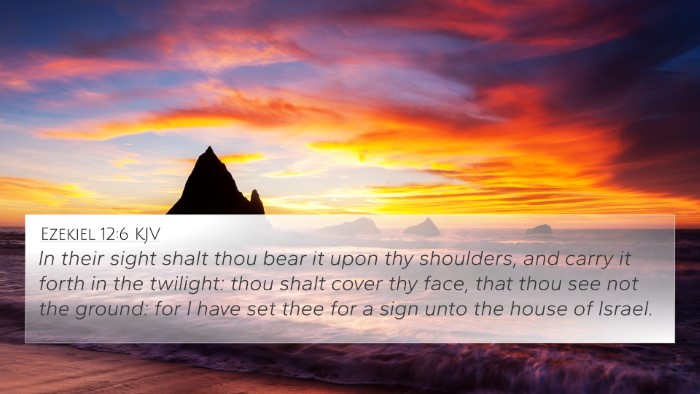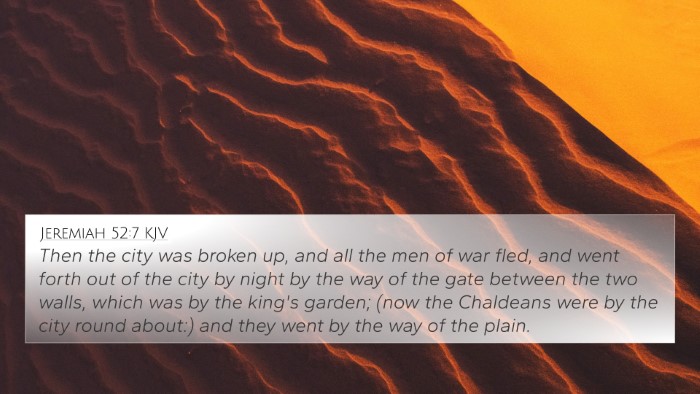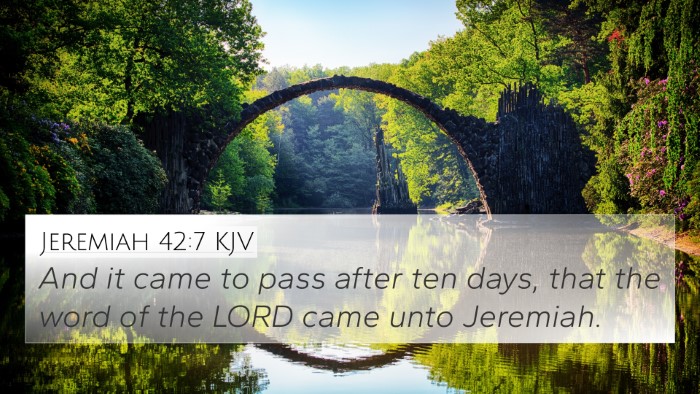Ezekiel 12:12 - Summary and Commentary
The verse Ezekiel 12:12 states:
"And the prince that is among them shall bear upon his shoulder in the twilight, and shall go forth; they shall dig through the wall to carry out thereby: he shall cover his face, that he see not the ground with his eyes." (Ezekiel 12:12 KJV)
Meaning and Insights
This verse, rich in prophetic imagery, depicts a scene where the prince of the people attempts to flee from the impending doom of Jerusalem. Drawing from public domain commentaries, we can extract several layers of meaning:
- Matthew Henry's Commentary:
Henry elucidates that the prince represents the leaders of Israel, symbolizing their failure to heed God's warnings. The act of covering the face indicates shame or cowardice as the leader attempts to escape judgment.
- Albert Barnes' Notes:
Barnes interprets this as a foreshadowing of the captivity of Jerusalem's leaders. The twilight symbolizes the end of the day for the city, a time when escape becomes increasingly futile.
- Adam Clarke's Commentary:
Clarke provides context, emphasizing how this prophetic act serves as a sign to the multitude about the seriousness of the circumstances surrounding the exiled Israelis. The digging through the wall is a metaphor for the desperate measures taken by leaders in times of crisis.
Cross-References
In considering the connections between Bible verses, we can relate Ezekiel 12:12 to several other Scriptures:
- Jeremiah 39:4: Discusses the capture of Zedekiah, which parallels the plight of the prince.
- Lamentations 1:6: Addresses the desolation of Jerusalem, echoing the themes of loss and exile found in Ezekiel's message.
- Ezekiel 8:18: Captures the severity of God's judgment upon His people, reinforcing the prophet's warnings.
- Isaiah 22:20-22: Similar imagery of leaders being deposed due to disobedience can be seen in this passage.
- Amos 2:13: Speaks on God’s judgment for the transgressions of Israel, aligning with the message of judgment Ezekiel conveys.
- Luke 21:20-24: New Testament parallel concerning the destruction of Jerusalem and the escape of those who heed God's signs.
- Romans 11:27: Reflects on the restoration of Israel, offering hope amid the judgment illustrated in Ezekiel.
- 2 Chronicles 36:17-20: Discusses the exile and captivity, providing historical context to Ezekiel's prophecy.
- Matthew 24:17-18: Jesus warns of fleeing persecution, similar to the urgency found in Ezekiel's calling for awareness.
- Revelation 18:4: A call to come out of Babylon before its destruction serves as a thematic connection to escaping judgment.
Linking Bible Scriptures
Understanding Ezekiel 12:12 requires an analysis of the connections between various scriptures:
Identifying these connections allows for a comprehensive understanding of the overarching narrative of exile, judgment, and the hope of restoration enforced through God's covenant.
Comparative Analysis
As we examine these cross-referenced verses, we see thematic consistencies regarding God's justice and the motivations behind prophetic signs. The thematic threads woven throughout the Bible lead to a deeper appreciation of the role of the prophetic voice.
For those studying the Bible, tools for cross-referencing such as a Bible concordance or cross-reference Bible study guides will enhance understanding. Employing cross-referencing methods can illuminate inter-Biblical dialogues and reveal links between the prophetic teachings and their fulfillment in the New Testament.
Conclusion
In conclusion, Ezekiel 12:12 serves not just as a standalone verse but as a significant part of a larger tapestry of scripture that illustrates God's sovereignty, justice, and mercy. For those engaged in study, utilizing various Bible reference resources and comparative analysis will deepen understanding and reveal the profound connections between the Old and New Testaments.
